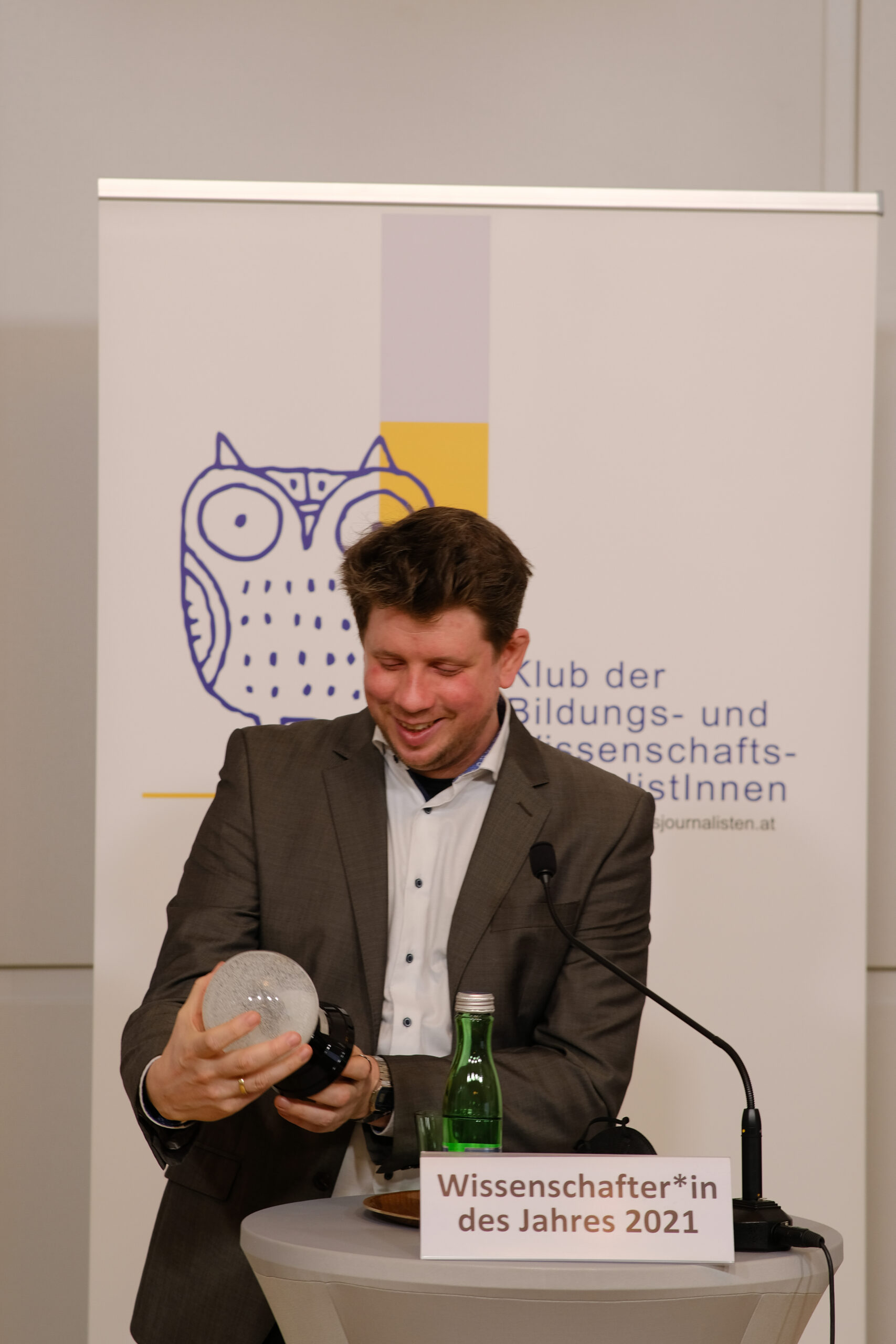Why did you become a scientist?
After I finished my studies, I wasn’t really sure whether I wanted to stay in science. The interest was there, but especially for young scientists, after the doctorate there are often only more or less precarious jobs with fixed-term contracts and frequent relocations. In the end, after a few excursions into business, it became university research, primarily because I really appreciate the freedom to define the focus of my own work, to ask new questions and to pursue them in more depth than is possible when you are always rushing from project to project.
Your efforts to make your research understandable to a large public or as many people as possible, especially in the Corona pandemic, have prompted the Club of Education and Science Journalists to award you the title of Scientist of the Year 2021. What is your goal in the analysis of huge amounts of data (“Big Data”)?
We want to generate hypotheses more quickly and in a more targeted way that could lead to new findings. Of course, we all know that you can primarily learn correlations, not causations — cause -> effect — from data. However, with suitable methods, it is very much possible to detect those correlations in a more targeted way behind which a previously not understood connection could possibly lie, for example, which side effects can occur with therapies. By collaborating with other disciplines and domains, we then investigate individual hypotheses in more detail to understand what lies behind them. The more data I have for this, the more precisely one can create different and patient profiles and find suitable control groups to ask more precise questions. For me, this is a new kind of personalised medicine: if I have enough data, I can find a sufficiently large group of comparable patients for every case, no matter how complicated it is, and look at which therapies led to an improvement and which did not.
What can you do to keep scientists and not just successor generations in Austria?
We have to build an excellent research environment. This has to do with international networking, first of all to know where there are top international researchers that one could realistically get and who would find many points of contact, colleagues, etc. for their questions in Austria. What we can also do ourselves is to build up a largely bureaucracy-free and open culture in our institutes, so that we can attract scientists perhaps not through universities with the most prestigious names, but with a stimulating environment where they can pursue their own interests at a top international level and network internationally with other top researchers in the field.
Contact
Section for Science of Complex Systems, Fotocredit: Roland Ferrigato
Medical University of Vienna
Spitalgasse 23
1090 Vienna, Austria
Tel: +43 1 40160 36255
Fax: +43 1 40160 936250
E-Mail: peter.klimek@meduniwien.ac.at

0 Comments